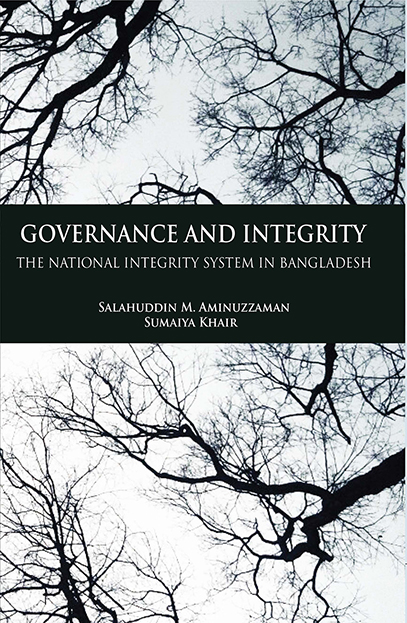- Shop
- Governance and Integrity: The National Integrity Systems in Bangladesh
Governance and Integrity: The National Integrity Systems in Bangladesh
https://uplbooks.com/shop/9789845062480-governance-and-integrity-the-national-integrity-systems-in-bangladesh-8380 https://uplbooks.com/web/image/product.template/8380/image_1920?unique=337f592
| Language: English |
Tags :
Book Info
The National Integrity System (NIS) is the sum of all institutional structures (pillars), legal frameworks, and systematic processes to address governance deficits, corruption and dysfunctional aspects of public institutions and watchdog bodies. Since its articulation, the NIS concept has been used as a basis for qualitatively assessing the vulnerabilities of a given country to corruption and institutional effectiveness in addressing corruption. Collective strength and a strong synergy between and amongst NIS pillars is crucial for the system's overall effectiveness. Weaknesses in one or more pillars, particularly in the public sector, directly or indirectly affect the other pillars. Based on the Bangladesh NIS assessment conducted by the authors in August 2012 and September 2013 following an internationally developed methodology, this book examines the capacity, role and governance of the Parliament, Executive, Judiciary, Public Administration, Local Government, Police, Comptroller and Auditor General, Election Commission, Anti-Corruption Commission, National Human Rights Commission, Information Commission, Political Parties, Civil Society, Media, and Business. It analyses both the legal framework governing the institutions and actual practice to highlight the gaps between the two and offers a set of practical policy recommendations for better performance of the NIS in Bangladesh.

Salahuddin M. Aminuzzaman
Professor Dr. Salahuddin M. Aminuzzaman is a senior faculty of the Department of Public Administration, University of Dhaka. He also served as the Chair of the Department of Development Studies at the University of Dhaka. Currently, he is also the Program Adviser of the Public Policy & Governance Program, at North South University. He has a long teaching experience of over three decades. He has worked as a Consultant for leading multi-lateral and bilateral development partners. Professor Aminuzzaman was a senior Fulbright Scholar. He has been a visiting Professor at a number of European and North American universities. He is a Member of the Policy Advisory Group (PAG), Ministry of Local Government, Government of Bangladesh. He also sits on the

Sumaiya Khair
Sumaiya Khair is a Professor at the Department of Law, University of Dhaka, Bangladesh where she served as the Head of the Department from 2009-2011. She is currently on leave and serving Transparency International Bangladesh as its Deputy Executive Director. She has a Ph.D. from the UK where she also studied as a Commonwealth Post-Doctoral Academic Fellow. She sits on editorial boards of international law journals and on governing boards of development sector organisations. She writes on law, justice, human rights and governance and has to her credit a number of publications in national and international books and journals.



